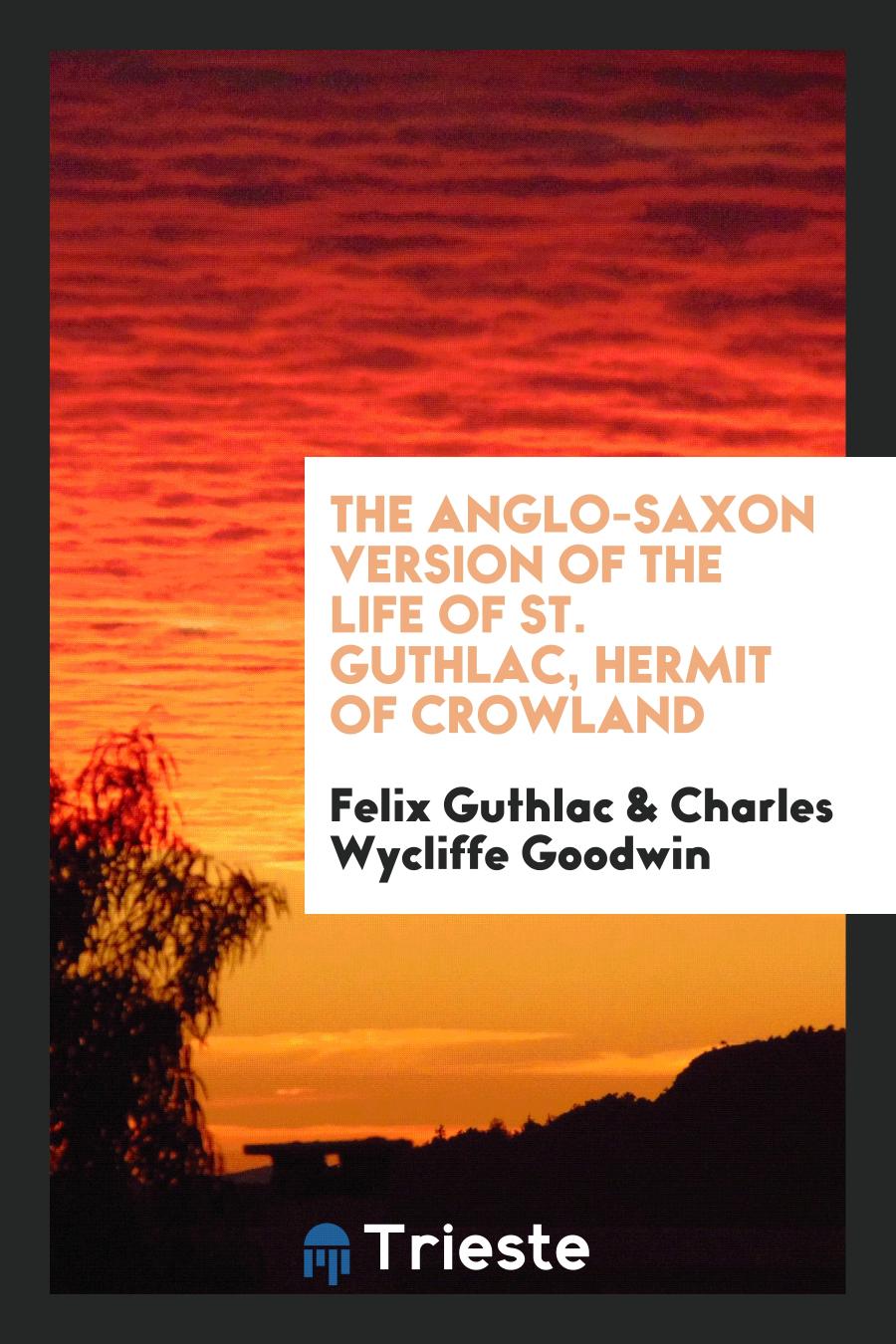
Felix Guthlac
Saint Guthlac of Crowland (674 - 3 April 715) was a Christian saint from Lincolnshire in England. He is particularly venerated in the Fens of eastern England. Guthlac was the son of Penwalh or Penwald, a noble of the English kingdom of Mercia, and his wife Tette. His sister is also venerated as St Pega. As a young man, Guthlac fought in the army of Æthelred of Mercia. He subsequently became a monk at Repton Monastery in Derbyshire at the age of 24, under the abbess there, Repton being a double monastery. Two years later he sought to live the life of a hermit, and moved out to the island of Croyland, now called Crowland, on St Bartholomew's Day, AD 699. His early biographer Felix asserts that Guthlac could understand the strimulentes loquelas ("sibilant speech") of British-speaking demons who haunted him there, only because Guthlac had spent some time in exile among Celtic Britons. Guthlac built a small oratory and cells in the side of a plundered barrow on the island. There he lived until his death on 11 April 714. Felix, writing within living memory of Guthlac, described his hermit's life: Now there was in the said island a mound built of clods of earth which greedy comers to the waste had dug open, in the hope of finding treasure there; in the side of this there seemed to be a sort of cistern, and in this Guthlac the man of blessed memory began to dwell, after building a hut over it. From the time when he first inhabited this hermitage this was his unalterable rule of life: namely to wear neither wool nor linen garments nor any other sort of soft material, but he spent the whole of his solitary life wearing garments made of skins. So great indeed was the abstinence of his daily life that from the time when he began to inhabit the desert he ate no food of any kind except that after sunset he took a scrap of barley bread and a small cup of muddy water. For when the sun reached its western limits, then he thankfully tasted some little provision for the needs of this mortal life. The 8th-century Latin Vita sancti Guthlaci is written by Felix, who describes the entry of the demons into Guthlac's cell. Felix records Guthlac's foreknowledge of his own death, conversing with angels in his last days. At the moment of death a sweet nectar-like odour emanated from his mouth, as his soul departed from his body in a beam of light while the angels sang.
